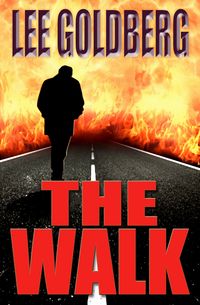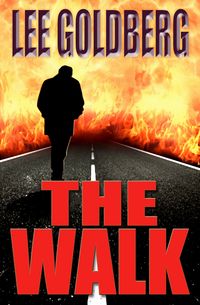Over on Debbi Mack's blog, someone asked me:
Lee, you said that you would advise new authors (unpublished) to take a contract with a small press over self-publishing. Could you expand on that? What do you think that would offer them over the chance to sell more books and attract more readers?
Very few self-published authors are selling as well on the Kindle as Joe Konrath …or even close. But let’s say you are one of the lucky few selling about 500 copies of your book a month at $2.99, earning $1000-a-month in royalties.
If the sales hold, you’ll sell 6000 copies-a-year, and earn $12,000. A typical, low-end advance for a new writer would be about $6000, give or take a thousand. A low-end mass market print run would be about 30,000 copies…a hardcover run would likely be about 5000 (and, of course, in success it could be considerably more). Your book will be in most bookstores in the country, and if it’s a mass market paperback, probably most drugstores, convenience stores, and some airports. And, of course, there will also be an e-book edition. You might even get foreign sales, large print deals, and an audio book out of it, generating more income.
I would argue that you'd be a fool not to take a mid-list paperback or a hardcover deal over self-publishing on the Kindle. Financially, you might make less (in failure or only modest success)…but the difference will be more than made up for in editing, marketing, wider readership, wider name recognition, and professional prestige (and that prestige does mean something, whether you want to admit it or not).
You can always go back to self-publishing… and when you do, you will be bring that wider readership, name recognition, and professional prestige with you. But a book deal doesn't come along every day, and that's still going to mean something for a long time yet…and I suspect it still will if bookstores disappear.
I have no doubt the big reason my out-of-print are doing as well as they are is because they are riding on the large readership of my MONK and DIAGNOSIS MURDER books.
So let's use a real world example. Boyd Morrison sold thousands of copies of THE ARK on the Kindle…and abandoned Amazon in a nanosecond for a print deal. Why? Because he knew he could reach even more people and potentially make even more money (and sell the rights to other publishers around the world, not to mention audio, film, etc). He was thinking about his long-term career. It was a wise move…because you can always go back to self-publishing… but a contract from a major publisher is a lucky break that may not come again.
But don’t take my word for it… here’s what Boyd has had to say on the topic:
“If your goal is just to write and get your books out there where readers can find them, e-publishing lets you do that in a way that doesn't cost you thousands of dollars paid to vanity presses to get a few thousand copies that will molder in your basement. Instead, you can now make some decent money selling ebooks, which will reward independent writers who produce good books that are well-packaged and cleverly promoted. […] But if you are writing books to make a living (so that you can ditch your old job), you'll certainly have to consider the financial ramifications of staying indie versus going with a publisher. In my case, I wanted to reach as many readers as possible, and though ebooks are growing at an exponential rate, most sales are still currently in stores. In two years, those numbers will be very different, but for right now that's the situation. In addition, I'd be surprised if I ever would have gotten deals for The Ark in UK, Germany, Holland, Italy, and all the other countries without a US publishing deal. Although I'm not anywhere near the league of Stieg Larsson's sales, you can get an idea of how the US market compares to the rest of the world by looking at his numbers: he has sold 4 million books in the US, but he has sold over 40 million books worldwide. That percentage is not uncommon for authors of thrillers, which are what I happen to write. Yes, with the advent of Amazon Kindle UK, I could have put my books on that store as well, but I never would be able to put my books on Amazon Kindle Deutsche because I would need a German translator. And remember that Amazon Kindle UK wasn't even a faint glimmer when I got my publishing deal last year (47 Internet years ago). So truly take a deep look at what your goals are before you decide to take either the indie route or the traditional publishing route. Either way, you'll get to do what you love, which is write. But the effort, hassle, financial rewards, prestige, and desired readership should all be factors you consider in your decision.”
For me, and other mid-list authors, it’s an entirely different decision.
I got a $2000 advance when I sold THE WALK to Five Star in 2003. It was published in hardcover in 2004 and didn't earn out. It tanked. I have since sold close to 9000 copies of THE WALK on the Kindle. I make more in one month from Kindle sales on THE WALK than I did during the two years that the book was in print in hardcover.
If a publisher came to me today and offered me a mass market paperback deal for THE WALK, I probably wouldn't take it…because I don't see a scenario where I'd end up making more money on the book than I am making now. But it's easy for me to say that… I have 1 million copies of my MONK books in print with Penguin/Putnam.
If I was a newbie author, who'd never been in print before, I would probably take the mass market deal even if it meant earning less just for the exposure and professional credibility it would give me.
All that said, writers now have more options than ever before…which is great. And the rise of FREE self-publishing (meaning no cash out-of-pocket) may finally drive into extinction Authorhouse, Jones Harvest, and all the other sleazy vanity presses out there that have preyed on the desperation and naivete of aspiring writers for too long.



